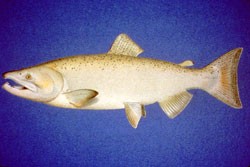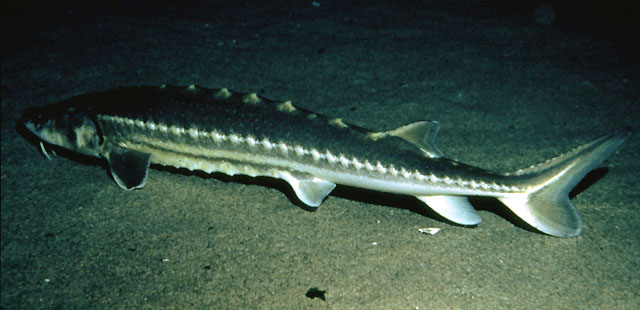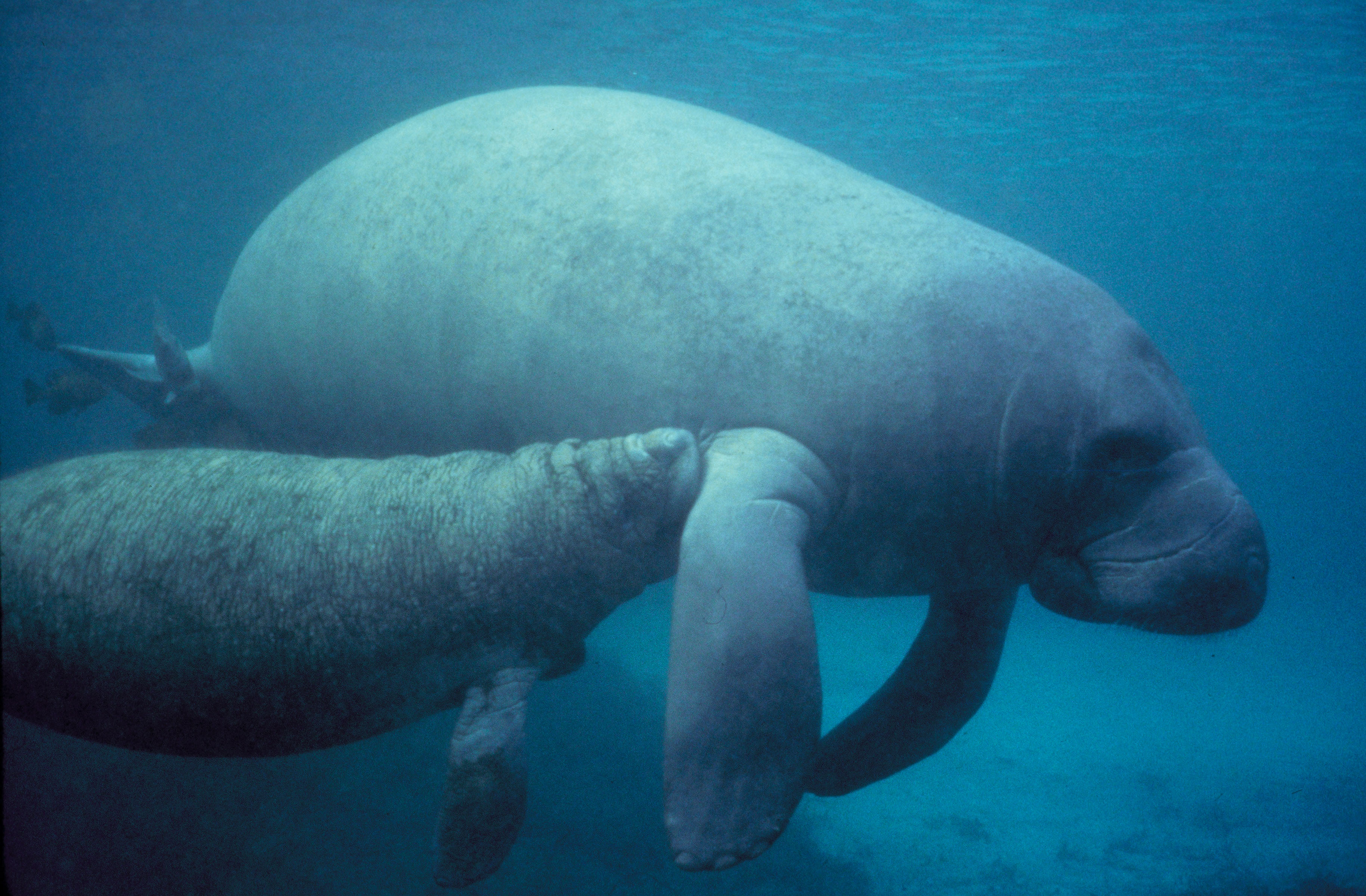Hi Scherazade, ... how are you and how is your semester going? Hope things are good ... met an interesting Professor of Islamic Studies at Reed College a few weeks ago, originally from Iran - it was nice to talk with him about a variety of things.
Kambiz G. is his name - http://academic.reed.edu/religion/faculty.html - and I mentioned I knew you. He has a Harvard Ph.D. and has been at Reed for 12 years, having gone to Claremont in CA for his BA ... I enjoyed our conversation ... During our conversation, he said Reed doesn't teach Freud in psychology (just after my first day's World University and School's workshop/class there a few weeks ago)... Psychology at Reed still has an experimental, scientific method, behaviorism emphasis (partly because undergraduates can learn how to create experiments, I think - with mice, etc.) as well as emphasizes "the application of empirical methods to the study of cognitive, affective, social, and behavioral processes [where] Students are exposed to the science of mind, behavior and relationships, are asked to engage in library and "hands-on" research projects, and are given many opportunities to improve their abilities to read and critique research articles, to write, and to present materials orally" (http://academic.reed.edu/psychology/) ... although Freud is taught in other intellectual history disciplines at Reed ... it made me want to refresh my memory about Freud's "Civilization and its Discontents" (1930) or Das Unbehagen in der Kultur ("The Uneasiness in Culture") ... which I'm blogging about today here, and vis a vis Harbin ... I liked Kambiz a lot and will keep in touch ...
*
Woke up this morning wanting to refresh my memory about the ideas in "Civilization and its Discontents" by Sigmund Freud, and found this online:
http://www.gradesaver.com/civilization-and-its-discontents/study-guide/summary.
Wanting to rif with these ideas, and even as improvisational social theory, and vis-a-vis a number of themes in this blog including -
a) about Harbin Hot Springs anthropologically,
b) the oceanic feeling Freud writes of perhaps vis-a-vis
c) oneness and neurophysiology,
d) civilization as culture (in this blog) and perhaps
e) discontents as counterculture (in this blog) although the worlds of Vienna and central Europe 100 years ago, and post 1960's America and California, {and India ~ as religious culture ~ for example} all as place informing ideas, are very different ... and
f) religion and destructiveness, and
g) ego formation, as ideas, and the conflicts he examines intellectually (between civilization and its discontents and between religion, the father figure, and the many problems with religion), and
f) guilt, and
g) incest, and
h) sexuality and attraction, and implications for what might work therapeutically on-the-ground in real life, and for psychiatrists with his theories, and
i) the father figure and religion, and
j) Common chimps (Pan troglodytes) vis-a-vis
k) Bonobo chimps (Pan paniscus), and
l) what humans can learn from them, as a kind of genetically-informed neurophysiological and evolutionary biological context,
As I woke up thinking about this, I was experiencing what I might call psychical phenomena as "synchronous socioculture mental processes"(?) ...
evolutionary biology
beyond words and symbols, as a complement to biology and neurophysiology ...
He brings together so many significant fascinating significant concepts to humans living together - civilization, religion and unease/discontent - together in one paper hypothesizing how they work, and in a way few others have done as interestingly.
I'd also like to offer a critique and alternative analyses about his theses ... and vis-a-vis some of the above ...
I'd like to suggest that all of the above are neurophysiologies, something Freud didn't seem to think about, that is oneness and uneasiness, and the effects of religion all are brain chemistries ... which are contextualized best, as I see it, in the context of evolutionary biology and human sociocultures (of which both civilization and religion are aspects and processes). I find John Money's section "Concepts of Determinism" (1988) -
http://scottmacleod.com/anthropology/determinism.htm - more readily helpful in explaining and putting into perspective any conceptualizations of the "ego" but here as bodymind. While sexuality in Money seems to likely to be also an important yearning ("What does man wish for and aim to achieve in life? Religious belief hinges on this central question"), Money doesn't address societ
al questions very much, as Freud does, but Money does suggest that some of this is bound up in "ycleptance" ("meaning to name, to call, or to style") and explicitly doesn't look at religion very much in "Gay, Straight and In-Between: The Sexology of Erotic Orientation."
While sociocultural processes may inform as a kind of ecology regulating and lessening the harming of each other, in my opinion ... which Freud say civilization does, I think one could posit that sociocultural processes also help create agency, against Freud's positing that "A "decisive step" toward civilization lies in the replacement of the individual's power by that of the community," I also think that a reading of this post 1960's, when Money wrote too, offers very different sociological reasons for how these processes that Freud is positing work.
I'd posit too that humans are closer to common chimpanzees metaphorically but that we can learn Bonobo chimp culture ... and places like Harbin Hot Springs clothing-optional pool area and mediative releasing action in warm water are a good step toward creating ways we might learn these oceanic experiences.
*
In the introductory paragraphs, Freud attempts to understand the spiritual phenomenon of a so-called "oceanic" feeling - ‹the sense of boundlessness and oneness felt between the ego and the outside world. This feeling is "a purely subjective fact, not an article of faith." It does not betoken an allegiance to a specific religion, but instead points to the source of religious sentiment in human beings. Churches and religious institutions are adept at channeling this sentiment into particular belief systems, but they do not themselves create it.
In general, the ego perceives itself as maintaining "sharp and clear lines of demarcation" with the outside world. This distinction between inside and outside is a crucial part of the process of psychological development, allowing the ego to recognize a "reality" separate from itself. After summarizing his previous research, Freud returns to the question of "oceanic" feeling, finding it unconvincing as an explanation of the source of religious sentiment in human beings. Instead, according to Freud, it is a longing for paternal protection in childhood that continues into adult life as a sustained "fear of the superior power of Fate."
In Future of an Illusion, Freud lamented the common man's preoccupation with the "enormously exalted father" embodied by God. The idea of placating a supposedly higher being for future recompense seems utterly infantile and absurd. The reality is, however, that masses of men persist in this illusion for the duration of their lives. According to Freud, men exhibit three main coping mechanisms to counter their experience of suffering in the world: 1) deflection of pain and disappointment (through planned distractions); 2) substitutive satisfactions (mainly through the replacement of reality by art); 3) intoxicating substances. Freud concludes that religion cannot be clearly categorized within this schema.
What does man wish for and aim to achieve in life? Religious belief hinges on this central question. Most immediately, men strive to be happy, and their behavior in the outside world is determined by this "pleasure principle." But the possibilities for happiness and pleasure are limited, and more often we experience unhappiness from the following three sources: 1) our body; 2) the external world; and 3) our relations to other men. We employ various strategies to avoid displeasure: by isolating ourselves voluntarily, becoming a member of the human community (i.e. contributing to a common endeavor), or influencing our own organism. Religion dictates a simple path to happiness. It thereby spares the masses of their individual neuroses, but Freud sees few other benefits in religion.
After looking specifically at religion, Freud broadens his inquiry into the relationship between civilization and misery. One of his main contentions is that civilization is responsible for our misery: we organize ourselves into civilized society to escape suffering, only to inflict it back upon ourselves. Freud identifies three key historical events that produced this disillusionment with human civilization: 1) the victory of Christendom over pagan religions (and consequently the low value placed on earthly life in Christian doctrine); 2) the discovery and conquest of primitive tribes and peoples, who appeared to Europeans to be living more happily in a state of nature; 3) scientific identification of the mechanism of neuroses, which are caused by the frustrating demands put on the individual by modern society. An antagonism toward civilization developed when people concluded that only a reduction of those demands - ‹in other words, withdrawal from the society that imposed them‹ - would lead to greater happiness.
Freud defines civilization as the whole sum of human achievements and regulations intended to protect men against nature and "adjust their mutual relations." A "decisive step" toward civilization lies in the replacement of the individual's power by that of the community. This substitution henceforth restricts the possibilities of individual satisfaction in the collective interests of law and order. Here Freud draws an analogy between the evolution of civilization and the libidinal development of the individual, identifying three parallel stages in which each occurs: 1) character-formation (acquisition of an identity); 2) sublimation (channeling of primal energy into other physical or psychological activities); 3) non-satisfaction/renunciation of instincts (burying of aggressive impulses in the individual; imposition of the rule of law in society).
Even if one of the main purposes of civilization is to bind each man's libidinal impulses to those of others, love and civilization eventually come into conflict with one another. Freud identifies several different reasons for this later antagonism. For one, family units tend to isolate themselves and prevent individuals from detaching and maturing on their own. Civilization also saps sexual energy by diverting it into cultural endeavors. It also restricts love object choices and mutilates our erotic lives. Taboos (namely, against incest), laws, and customs impose further restrictions. Freud reasons that civilization's antagonism toward sexuality arises from the necessity to build a communal bond based on relations of friendship. If the activity of the libido were allowed to run rampant, it would likely destroy the monogamous love-relationship of the couple that society has endorsed as the most stable.
Freud next objects to the commandment "Love thy neighbor" because, contrary to Biblical teaching, he has come to see human beings as primarily aggressive rather than loving. He first identified this instinctual aggressiveness in Beyond the Pleasure Principle, and though his proposed "death drive" was initially met with skepticism, he maintains and develops the thesis here. Civilization is continually threatened with disintegration because of this inclination to aggression. It invests great energy in restraining these death instincts, and achieves this goal by installing within the individual a sort of watchdog agency, which Freud calls the super-ego, to master our desire for aggression. For Freud, the entire evolution of civilization can be summed up as a struggle between Eros and the death drive, overseen by the super-ego.
With the establishment of the super-ego comes a sense of bad conscience. Because it is internalized, the super-ego omnisciently regulates both our thoughts and deeds, whereas prior to its installation, individuals only had to submit themselves to a higher authority for punishment (such as parents) in the case of fully accomplished acts. There are two sources of guilt: 1) fear of authority and 2) fear of the super-ego. In the latter case, instinct renunciation no longer liberates the individual from the sense of internal guilt that the super-ego continues to perpetuate. By extension, civilization reinforces the sense of guilt to regulate and accommodate the ever-increasing numbers of relationships between men. It becomes a more repressive force that individuals find increasingly difficult to tolerate. Freud considers this increasing sense of guilt to be "most important problem in the development of civilization," since it takes an enormous toll on the happiness of individuals.
In the last chapter, Freud clarifies his usage of seemingly interchangeable terms: the "super-ego" is an internal agency whose existence has been inferred; "conscience" is one of the functions ascribed to the super-ego, to keep watch over the intentions and actions of the ego; "sense of guilt" designates the perception that the ego has of being surveyed and arises from the tension between its own strivings and the (often overly severe) demands of the super-ego. It can be felt prior to the execution of the guilty act, whereas "remorse" refers exclusively to the reaction after the act of aggression has been carried out. Finally, Freud re-emphasizes the instinct of aggression and self-destruction as the single greatest problem facing civilization, as manifested in "the present time." He ends by asking which force‹ - "eternal Eros" or his potent adversary‹ - will prevail.
http://www.gradesaver.com/civilization-and-its-discontents/study-guide/summary
*
Here's an interesting perspective from Professor John Money:
Concepts of Determinism
In order to circumvent the platitudes of nature versus nurture, I needed a concept that would not only encompass both, but also transcend both. I formulated this concept as irreducible exigencies of being human that apply universally, transculturally, and transhistorically. They are not causal in either the teleological or mechanistic sense of causality. They are, instead, phenomenological verities of existence to be taken into account by any and every theory of the causality of what human beings do, sexologically or otherwise. There are five universal exigencies of being human, named and briefly characterized, as follows.
Pairbondage
Pairbondage means being bonded together in pairs, as in the parent-child pairbond, or the pairbond of those who are lovers or breeding partners. In everyday usage, bondage implies servitude or enforced submission. Although pairbondage is defined so as not to exclude this restrictive connotation, it has a larger meaning that encompasses also mutual dependency and cooperation, and affectional attachment. Pairbondage has a twofold phyletic origin in mammals. One is mutual attachment between a nursing mother and her feeding baby, without which the young fail to survive. The other is mutual attraction between males and females, and their accommodation to one another in mating, without which a diecious species fails to reproduce itself.
Male - female pairbonding is species specific and individually variable with respect to its duration and the proximity of the pair. In human beings, the two extremes are represented by anonymous donor fertilization versus lifelong allegiance and copulatory fidelity.
Troopbondage
Troopbondage means bondedness among individuals so that they become members of a family or troop that continues its long-term existence despite the loss or departure of any one member. Human troopbondage has its primate phyletic origin in the fact that members of the troop breed not in unison but asynchronously, with transgenerational overlap, and with age-related interdependency. In newborn mammals, the troopbonding of a baby begins with its pairbonding with its mother as the phyletically ordained minimum unit for its survival and health. After weaning, it is also phyletically ordained for herding and troopbonding species that isolation and deprivation of the company of other members of the species or their surrogate replacements is incompatible with health and survival. Nonhuman primate species are, in the majority of instances, troopbonders like ourselves.
Abidance
Abidance means continuing to remain, be sustained, or survive in the same condition or circumstances of living or dwelling. It is a noun formed from the verb, to abide (from the Anglo-Saxon root, bidan, to bide). There are three forms of the past participle, abode, abided, and abidden.
In its present usage, abidance means, like its synonym, sustentation, to be sustained in one's ecological niche or dwelling place in inanimate nature in cooperation or competition with others or one's own species, among other species of fauna and flora. Abidance has its phyletic origin in the fact that human primates are mammalian omnivores ecologically dependent on air, water, earth, and fire, and on the products of these four, particularly in the form of nourishment, shelter, and clothing, for survival. Human troops or individuals with an impoverished ecological niche that fails to provide sufficient food, water, shelter, and clothing do not survive.
Ycleptance
Yclept is an Elizabethan word, one form of the past participle of to clepe, meaning to name, to call, or to style. Ycleped and cleped are two alternative past participles. Ycleptance means the condition or experience of being classified, branded, labeled, or typecast. It has its phyletic basis in likeness and unlikeness between individual and group attributes. Human beings have named and typecast one another since before recorded time. The terms range from the haphazard informality of nicknames that recognize personal idiosyncrasies, to the highly organized formality of scientific classifications or medical diagnoses that prognosticate our futures. The categories of ycleptance are many and diverse: sex, age, family, clan, language, race, region, religion, politics, wealth, occupation, health, physique, looks, temperament, and so on. We all live typecast under the imprimatur of our fellow human beings. We are either stigmatized or idolized by the brand names or lables [sic] under which we are yclept. They shape our destinies.
Foredoomance
Doom, in Anglo-Saxon and middle English usage meant what is laid down, a judgment, or decree. In today's usage it also means destiny or fate, especially if the predicted outcome is adverse, as in being doomed to suffer harm, sickness, or death. A foredoom is a doom ordained beforehand. Foredoomance is the collective noun that, as here defined, denotes the condition of being preordained to die, and to being vulnerable to injury, defect, and disease. Foredoomance has its phyletic origins in the principles of infirmity and the mortality of all life forms. Some individuals are at greater risk than others because of imperfections or errors in their genetic code. Some are at greater risk by reason of exposure to more dangerous places or things. All, however, are exposed to the risk, phyletically ordained, that all life forms, from viruses and bacteria to insects and vertebrates, are subject to being displaced by, and preyed upon, by other life forms. Foredoomance applies to each one of us at first hand, in a primary way, and also in a derivative way insofar as it applies also to those we know. Their suffering grieves us; their dying is our bereavement.
Coping Strategies
The human organism has three generic strategies for coping with the five universal exigencies: adhibition, inhibition, and explication. These strategies are under the governance of bodymind and should not be attributed to such inferential entities as unconscious motivation, voluntary choice, or willpower.
Adhibition and inhibition derive etymologically from the same Latin root, habere, to have or to hold. The verb, adhibit, means to engage, take, let in, use, or apply. Inhibit means to restrain, hinder, check, or prohibit. Thus adhibition is characterized by actively becoming engaged in doing something, gaining mastery or control of a situation, accomplishment, and fulfillment. Inhibition is characterized by becoming actively disengaged, avoiding or circumventing a situation, yielding, and being thwarted or deprived.
Explication derives from the Latin, explicatus, meaning unfolded. To explicate means to explain, interpret, or attribute meaning to an experience, situation, signal, or stimulus. Thus, explication as a coping strategy is characterized by actively construing, inferring, conceptualizing, formulating, designating, evaluating, confabulating, and in general, trying to make sense of what happens.
The aforesaid three coping strategies are generic insofar as they are inferential abstractions and conceptualizations derived from particular coping strategies, stratagems, or tactics. Any particular example of coping is classified as being primarily adhibitory, inhibitory, or explicatory, but each has the other two strategies represented as either secondary or tertiary, respectively. The ratio of the mix allows each particular strategy, stratagem, or tactic to have a three-way interpretation. Thus a major episode of transvestophilia associated with depression - although it may be primarily inhibitory and incapacitating from the viewpoint of the sufferer - is secondarily adhibitory, insofar as it has a manipulatory, tyrannical effect on the partner. It is tertiarily explicatory insofar as its genesis may be incorrectly attributed by the sufferer, perhaps to the extent of his being quasi-delusionally suspicious of being persecuted by others. The coexistence of these three interpretations constitutes the basis upon which psychodynamic hypotheses are constructed by scholars of sexology as well as other sciences.
With each of the generic categories of coping strategy, there are several recognizable different particular strategies, stratagems, or tactics for coping with the various demands subsumed under the five universal exigencies. A provisional listing of them is adapted from previous writings (Chapters 3-5 in Money, 1957; Chapter 9 in Money, 1986b), as follow.
Adhibitory Strategies. Perseveration; orderliness, hoarding and ritual; constant exertion; risk exploits; protest exploits; mating protests; surrogate displacement; impersonation; addiction.
Inhibitory Strategies. Fixation and regression; disownment; phasic disownment; phobia; sleeping spells; depression; suicide; mutilatory sacrifice of body parts; organs and limb amnesia; visceral amnesias; autonomic dysfunction; gestural and vocal automatisms; seizures and paroxysmal states.
Explicatory Strategies. Causal explanation; mirth and the comic; fantasy; dream; hallucination; depersonalization.
The five universal exigencies of being human, and the strategies of inhibition, adhibition, and explication constitute a conceptual or theoretical system to apply to sexological research in society and culture, as well as in the clinic. The system applies also to sexological diagnosis and prognosis in sex counseling and therapy. In the history of sexology, it is a system of post-Freudian, postmotivational psychodynamics. It is post-Pavlovian and post-Skinnerian as applied to stimulus-response theory. It is not univariate by multivariate. In the clinic it has the special virtue of freedom from the idioms of judgmentalism that haunt motivation theory. It allows the patient and the sexologist to be allies aligned against the syndrome, and not against one another as adversaries. It is a system that protects sexologists from the trap of motivational language that surreptitiously attributes to a patient personal guilt, blame, and responsibility for his or her syndrome. For that, patients are greatly appreciative. They are not helped by being judged and condemned, even covertly, for being deficient in health and well-being.
By John Money. From "Concepts of Determinism," Chapter 3, Section 11, p. 116 in Gay, Straight and In-Between: The Sexology of Erotic Orientation. Oxford University Press. 1988.
http://scottmacleod.com/anthropology/determinism.htm
*
Neurophysiology wiki subject/school at WUaS ..
http://worlduniversity.wikia.com/wiki/Neurophysiology ...
to which I may add this blog post, - and for we human primates, who learn and via sociocultural processes.
*
...

























